SAA Advances Community-Based Soybean Seed Multiplication Under SoPRI Project in Jimma and Bunno Bedele Zones
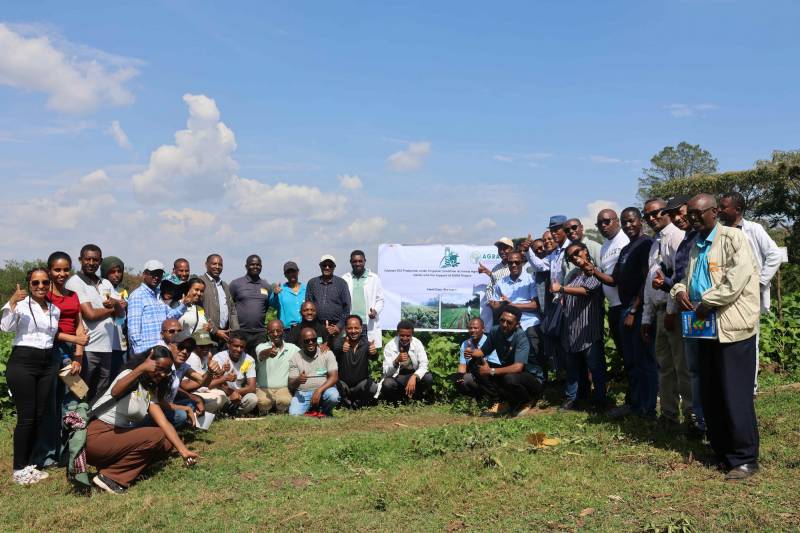
As part of Ethiopia’s national effort to boost local edible oil production and improve livestock feed availability, the SoyLink Consortium—comprising the Sasakawa Africa Association (SAA), Farm Radio International (FRI), and Green Agro Solution–LERSHA—is implementing a series of projects across fifty kebeles in five districts. These include Kersa and Nedhi-Gibe in the Jimma Zone, and Bedele-Zuria, Getchi, and Didesa in the Bunno Bedele Zone. Funded by AGRA, these projects support the piloting of Ethiopia’s Edible Oil and Animal Feed National Flagship Program, aiming to tackle bottlenecks along the soybean value chain, substitute imported edible oil, and stimulate livestock development through increased availability of soybean-based feed.
Strengthening Local Seed Systems Through Irrigated Community-Based Multiplication
One of the key initiatives under this program is the “Fostering Sustainable Farming Practices and Production Technologies for Improved Soybean Productivity, Resilience, and Income of Smallholder Farmers (SoPRI)” project, led by SAA. Given the critical constraint of limited access to climate-smart soybean seeds, the project prioritized the establishment of a Community-Based Seed Multiplication (CBSM) system using irrigated land, starting shortly after the project’s approval in September 2024.
Securing irrigated land was initially challenging, as both federal and regional governments had prioritized such land for wheat production. However, through intensive engagement with zonal and district authorities, SAA successfully facilitated the allocation of 21.25 hectares of irrigated land—8.25 hectares in Getchi District (Bunno Bedele Zone) and 13 hectares in Nedhi Gibe District (Jimma Zone)—dedicated specifically to soybean seed production.
Following land acquisition, consultative meetings were held with research and extension staff to select the most recent and farmer-preferred soybean varieties for multiplication. For the Jimma Zone, Clark-63K and SCS-1 were chosen, while in Bunno Bedele, Didessa and Ketta were prioritized. SAA procured 1,700 kilograms of basic seed for these varieties from the Jimma and Bedele Agricultural Research Centers to initiate the multiplication process.
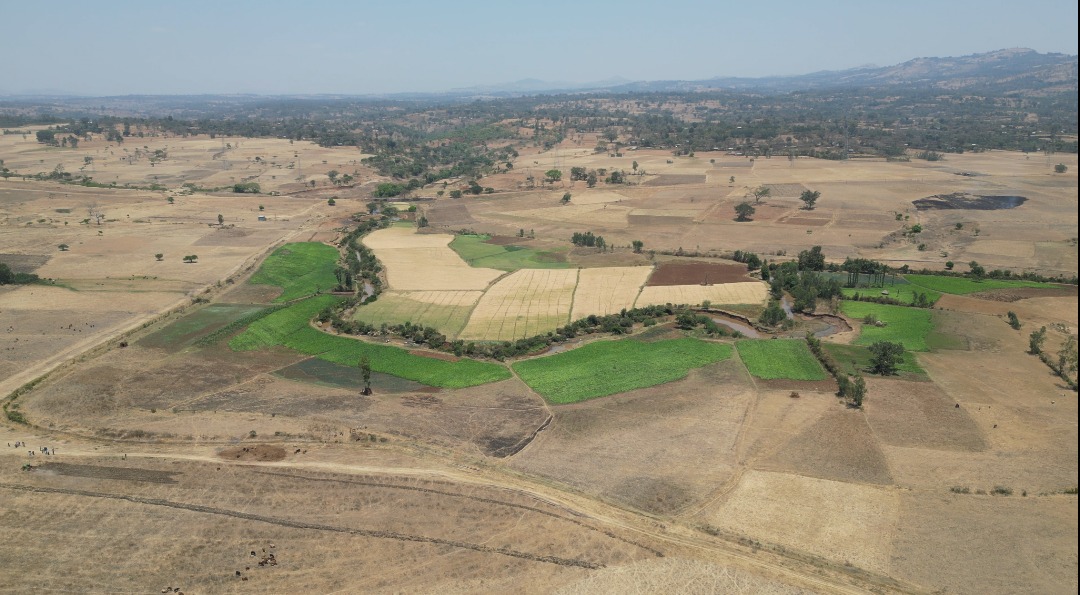 The irrigated land acquired by SAA in Nedhi Gibe District (Jimma Zone)
The irrigated land acquired by SAA in Nedhi Gibe District (Jimma Zone)Engaging Farmers and Promoting Improved Varieties
A total of 39 farmers—including three women—were selected from the target kebeles based on their ownership of irrigated land and willingness to participate. Twenty-eight of them were from Koticha Gibe in Nedhi Gibe District, while eleven were from Chara Kebele in Getchi Woreda. These farmers were introduced to the project’s goals and trained in effective soybean seed production techniques, equipping them to play a central role in local seed system development.
The cultivated land in Koticha Gibe was fully planted with the SCS-1 variety, covering 8.25 hectares. Meanwhile, in Chara Kebele, the 13 hectares were planted with a mix of varieties: Didessa on 6.5 hectares, Clark-63K on 2 hectares, SCS-1 on 3.5 hectares, and Meko-Bonsa on 1 hectare. This diversity of high-yielding, climate-resilient varieties aims to ensure adaptability and farmer preference across different agroecological settings.
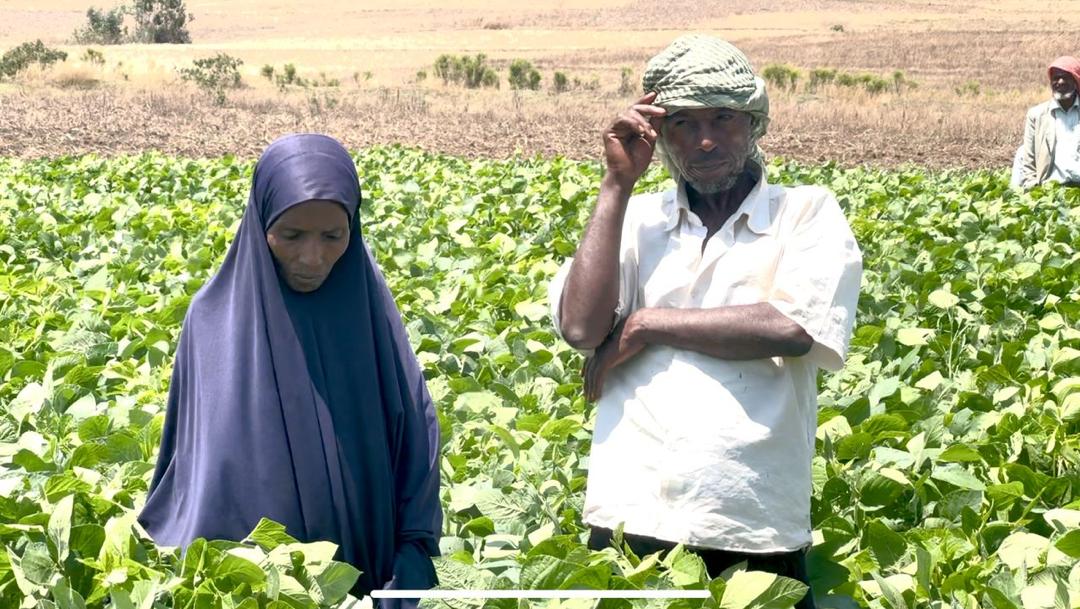
Farmers producing Soya Bean seed
Field Day Showcases Early Results and Stakeholder Support
To share the progress made, SAA organized a farmers’ field day on March 15, 2025, in Koticha Gibe Kebele. The event drew a wide range of stakeholders, including community elders, local farmers, researchers, extension agents, zonal and district government officials, and development partners. Participants observed the performance of the soybean seed plots and discussed how these efforts are helping to overcome barriers in the soybean value chain—particularly in improving farmers’ access to quality and certified seed.
During the event, host farmers shared their experiences, highlighting the training and support they received through the project. They noted significant improvements in production techniques and expressed strong interest in continuing and expanding the seed multiplication efforts. Attendees appreciated the project's progress and engaged in a lively feedback session, raising questions and providing observations that were addressed by representatives from the Jimma Zone Agriculture Office, the Jimma Agricultural Research Center, the district agriculture office, SAA Ethiopia, and Lersha.
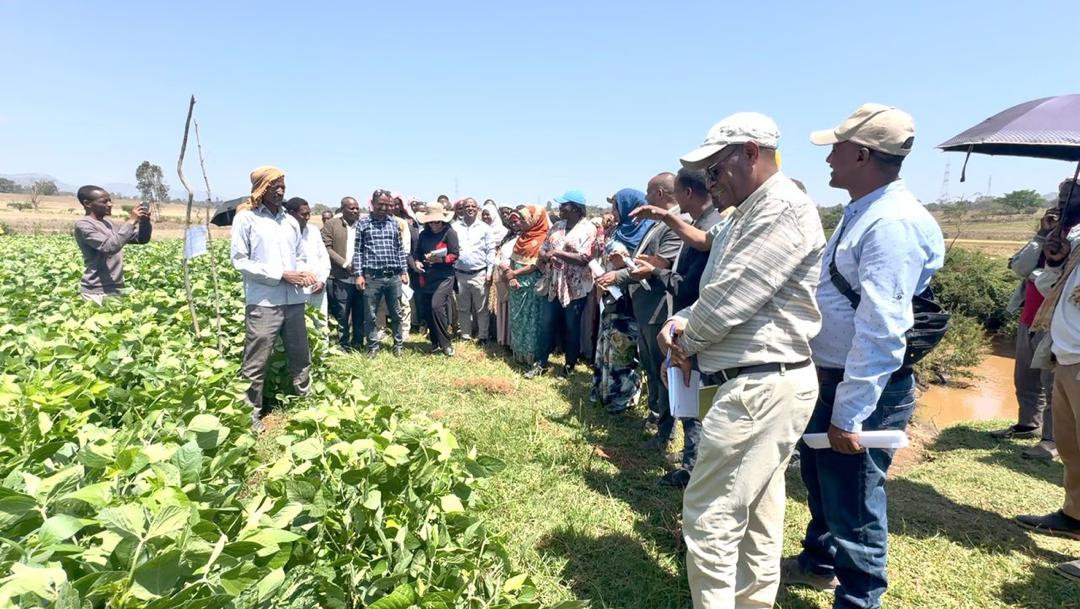
Field visit at the Soya Bean multiplication site
Looking Ahead: Scaling and Sustainability
The SoPRI project is already showing promising results in strengthening local seed systems and enhancing smallholder resilience. By equipping farmers with high-quality inputs, training, and support, the initiative is laying the groundwork for improved soybean productivity and farmer incomes. The collaborative approach, involving local institutions and farmers from the outset, offers a replicable model for scaling across other regions in Ethiopia.
With continued stakeholder commitment and resource mobilization, the project is well-positioned to contribute meaningfully to Ethiopia’s broader goals of self-sufficiency in edible oil production and inclusive agricultural transformation.
SAA Publications
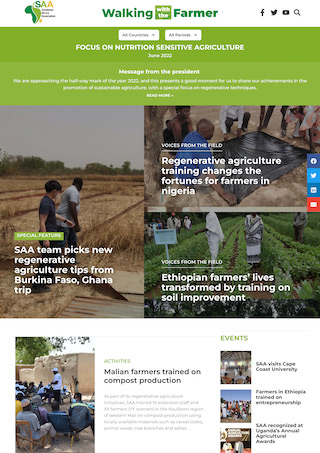
E-newsletter
"Walking with the Farmer"
SAA publishes a bimonthly e-newsletter reporting on SAA activities.
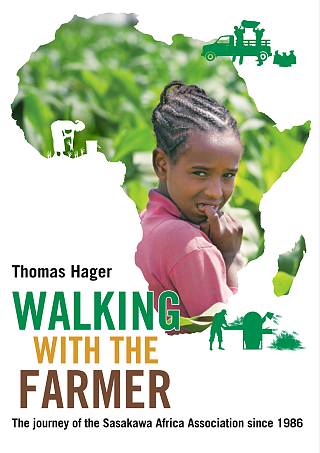
SAA history book
"Walking with the Farmer: The journey of the Sasakawa Africa Assoication since 1986"
This book chronicles the history of SAA from its inception to the present.

Annual Report
Annual Report FY2023
Annual Report FY2023 is available here.





